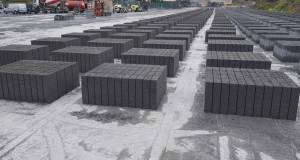- Opinion
- Posted
Government Economic Ignorance

A little knowledge might be a dangerous thing, but its complete absence is far worse. At a workshop in Dublin recently, councillors and planners discussed how local authorities could ensure that developers put forward decent proposals. Most of the councillors seemed to feel that they had little control over the projects which went ahead and, in particular, their density. This was because, if the developer had paid a lot for the piece of land, they felt morally obliged to allow rather more units to be built there than they would like so that the sale price of each individual unit was not excessive.
How wrong they were. The price of the site has nothing to do with the prices at which the houses or shops built actually sell. A developer cannot just say “I paid €1 million for this site but the planners have only given me permission for ten houses rather than the twenty I wanted. This means that the land for each house will cost €100,000 rather than the €50,000 I was expecting. I’ll have to put the price of each house up by €50,000 to compensate.”
It’s true that some developers might think like that, but they are not going to be able to jack up their price by €50,000 unless they can find buyers who are happy to pay that amount more for the extra garden. No, it’s the market that decides what prices the houses will fetch and a developer’s heartfelt wish to recover his costs has no bearing on these prices at all.
If the developer makes a loss, he’ll offer less the next time he buys a piece of land. Councillors have no obligation to make his speculation profitable, although, perhaps, he knows from experience that they will.
The little knowledge that the councillors at the seminar lacked was something economists have known for almost 200 years. It was in 1817 that David Ricardo pointed out that a 'tax on rent would affect rent only; it would fall wholly on landlords and could not be shifted to any class of consumers'. In other words, if a government imposes a tax on rents, there is no way that landlords can increase the amount their tenants have to pay to compensate since rents, like house prices, are set by the market. Higher taxes just mean that the market value of rental properties will drop.
This leads to a useful thought. One of the reasons that first-time buyers are having to take out such huge mortgages is that they are competing for properties with people from their parents’ generation who already own their own houses and are buying others to rent.
At the moment, investors letting property can set the interest they pay on their borrowings against the rental income they declare for tax. But suppose the tax situation reverted to that of between 1998 and 2002 and this relief was withdrawn for all deals made after a certain date. The effect would be to reduce the amount that would-be landlords could afford to pay after that date, and hence their ability to compete with young couples. The price of entry-level houses would drop.
Who would lose out? Not the would-be investors, as they would still get the same financial return. Nor the young couples, as they would need to borrow less. Only the developers would be out-of-pocket together with anyone who had bought an entry-level house recently and found that they needed to sell it.
The blunt truth is that the only effect that the tax relief currently granted on interest payments is having is adding to the profit being made by landowners when they sell their fields to developers. Did Charlie McCreevy realise this when he restored the interest-paid tax concession in 2002? Does Brian Cowen realise it now?
McCreevy restored the tax relief because the number of new apartments and houses being constructed had dropped markedly because landowners and developers with land banks were playing their trump card and refusing to sell or develop at the prices they were being offered. They could do this only because the supply of development land is effectively a monopoly. They then lobbied hard saying that the new restrictions were damaging the building industry. The government caved in as all governments have done in similar situations. What it should have done was to introduce an annual tax on land zoned for development to force the owners to develop it or sell it to someone who would.
Certainly, the general ignorance of this element of Ricardo’s economic thought has had very damaging effects in the housebuilding sector. Had it been more widely known, it would have been possible for very much tougher building regulations to have been introduced. Everyone would have accepted that if, say, much higher levels of insulation had been mandatory, house buyers would not have had to pay even a euro more. Instead, the person selling land for development, someone already making a huge gain, would have got slightly less.
The reason why this would have been the case was explained to the councillors at the seminar, although I doubt if they were convinced. They were told that someone planning a housing development finds out the price that the type of house they are planning to build can be expected to fetch in the location they have in mind. They then establish what the construction cost of that type of house will be and how many houses they are likely to be allowed to build on the site.
This enables them to work out the maximum price they can pay for the land. They take the total sales value of the number of houses they intend to build, deduct the construction costs and a sum to cover their time, the risks they are taking and their legal and other expenses and, voila, that’s the most the landowner can get. If the construction costs are increased by €10,000 per house because of stiffer building regulations, and they are building twenty houses, then that’s €200,000 less that they can offer the person selling the site.

The only effect that the tax relief is having is adding to profits being made by landowners when they sell to developers. Did Charlie McCreevy realise this when he restored the interest paid tax concession in 2002?
This simple analysis, which will be very familiar to Construct Ireland readers, enables us to predict what will happen in Fingal as a result of its recent stipulation that no new building in Cappagh, North Ballymun or Northwest Balbriggan should have a space-heating demand of more than 50Kwh per m2 of floor area and that 30% of the energy for space and water heating must come from renewable sources. Although, once the requirement becomes known, we can expect landowners to claim that no-one will build anything in Fingal in future, the only thing that will happen is that the market price of sites there will fall.
That is, unless the landowners use their monopoly again and, by refusing to develop, create a local housing shortage. They would then demand that the restrictions be lifted. However, Fingal could fight back by threatening to use the power that local authorities recently acquired to de-zone land without compensation in the next development plan if development has not taken place. Whether this would work is not clear as landowners of well located and serviced land would know that their land was desperately needed. They might call the council’s bluff. However, if the development levies due under Sections 48 and 49 were annualised so that the cost of public infrastructure serving the land was paid by the landowners on an ongoing basis, there would be a considerable cash flow cost to withholding it from development.
Economic ignorance is common in Europe too and as a result, the EU’s emissions trading scheme is seriously distorting competition in the Irish construction sector. Under this scheme, big users of fossil fuels are given permits entitling them to emit a certain tonnage of CO2 or its equivalent in other greenhouse gases. If they don’t use all their allocation, they can sell their surplus permits to companies which are expanding and require more than they were given.
In late November, the permit price was over €20 a tonne. As a result, Irish construction-sector-related companies will get presents of permits worth the amounts shown in the table in the first three-year period (2005-8) in which the trading system will operate.
It has already been announced that 90% of the permits will be given away in the following three-year period but, if there is a massive public outcry, this could be changed. The permits could either be auctioned by EU governments or, better, each EU resident could be given a coupon representing their personal share of Europe ’s total emissions which they would sell to fossil fuel companies through the banks. These would give everyone an income to compensate them for the higher energy prices.
Quite why the EU insisted on the permits being given away to industry as opposed to people is unclear as no economist would ever have recommended that course. Presumably, naïve politicians thought that, if the permits were given out rather than sold, it would enable electricity, glass, aluminium and cement to be cheaper as the producers would not have to buy the necessary permits and would thus not have to add their cost to the price they sought from the consumer. If so, they were hoodwinked by smart lobbyists who would have known that since the permits would acquire a market value and could be sold, firms would factor in the price they could have obtained by selling them as the cost of using them in their production processes.
This has been found to have been happening. In September 2005 the Energy Research Centre of the Netherlands (ECN) released a report "CO2 Price Dynamics: The Implications of EU Emissions Trading for the Price of Electricity" which analysed the effect that the free allocation of emission allowances had had on the price of electricity in Belgium , France , Germany and the Netherlands . It found that a significant part of the market value that the permits had acquired was being passed to consumers through higher power prices. The electricity producers had increased their profits as a result. The report concluded that the free allocation of emission allowances was a highly questionable policy option and suggested that auctioning allowances might be better.
In other words, even though the emissions permits came free, the price of electricity, and, doubtless, that of cement and all the other products made by the big emitters, is going to go up, if it has not already done so, by just as much as would have been the case if the permits had been sold by the 25 national governments. The difference is that the companies receiving the permits stand to make big windfall gains, while the national governments do not have the revenue they need to compensate their less-well-off citizens for the higher energy and other prices they are having to pay.

As long ago as 1817 David Ricardo pointed out that a 'tax on rent would affect rent only; it would fall wholly on landlords and could be shifted to any class of consumers.'
In short, the free permits constitute a massive subsidy - at €20 a tonne, €1,350 million in Ireland alone - to the polluting industries concerned. Moreover, the fact that it has been announced that the permits will be given away next time too encourages the owners of polluting plants to keep them open so that they can benefit from the subsidy again. If the plants had had to buy the permits, however, the dirtiest ones would have had to close.
The effect on competition in the construction industry needs to be examined. In effect, the emissions trading system is giving the heaviest energy users in the sector one of their raw materials free, despite the fact that that raw material, the right to emit, has a market value. Firms which use less of that raw material - and every firm uses fossil energy, directly or indirectly, and is thus responsible for emissions – don’t get any free permits at all. This penalises low energy users, exactly the ones you would have thought the EU wished to encourage. Timber frame construction loses out against concrete blocks yet again. And, if the building boom bursts and cement production almost stops, the companies will still get their emissions permits to sell.
But it is worse that that. To the extent that the high energy-users can raise their prices to allow for the market value of the permits, they will make extra profits. And these profits will give them a head start in the competitive race with their lower-energy rivals. Imagine the outcry there would have been if the government had just given Cement Roadstone Holdings and the others a lump of cash. This is no different. So why has there been no outcry? Is it economic ignorance again?
- Articles
- Opinion
- Government Economic Ignorance
- Richard Douthwaite
- cement
- Irish Economy
- environmental policy
- tax relief
- local authorities
Related items
-
 Most polluting cements ruled out in Irish public procurement
Most polluting cements ruled out in Irish public procurement -
 Up to 11
Up to 11 -
 Ecocem announces cement breakthrough to cut CO2 by 70 per cent
Ecocem announces cement breakthrough to cut CO2 by 70 per cent -
 Kilsaran launch lower carbon cement with CarbonCure
Kilsaran launch lower carbon cement with CarbonCure -
 Ecocem gets €22m investment from Bill Gates's climate fund
Ecocem gets €22m investment from Bill Gates's climate fund -
 Government announces €45m for social housing retrofit
Government announces €45m for social housing retrofit -
 Strong demand for GGBS from Irish market
Strong demand for GGBS from Irish market -
 Mannok announces new product names after rebrand
Mannok announces new product names after rebrand -
 The PH+ guide to greener concrete - reducing the climate impact of cement and concrete in buildings
The PH+ guide to greener concrete - reducing the climate impact of cement and concrete in buildings -
 Environmental activism - tracing the roots of today's climate activism
Environmental activism - tracing the roots of today's climate activism -
 Low carbon concrete blocks now available in Ireland
Low carbon concrete blocks now available in Ireland -
 10 million tonnes of carbon saved by low carbon cement — Ecocem
10 million tonnes of carbon saved by low carbon cement — Ecocem

